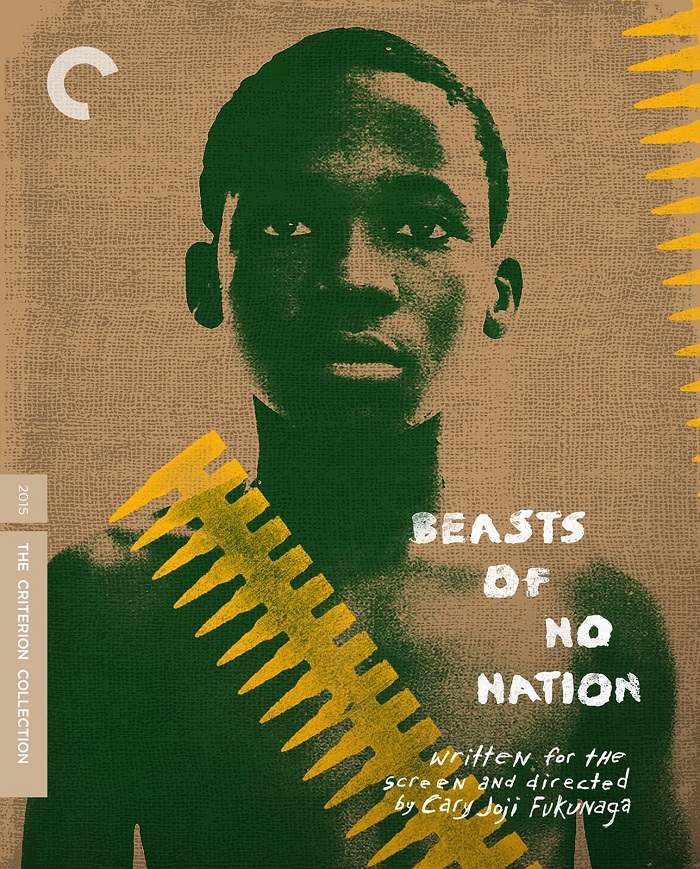
Written by Elias Levey-Swain
“I am thinking that the only way not to be fighting is to be dying.”
Cary Joji Fukunaga’s most recent directorial effort, Beasts of No Nation is a colorful triumph of cinematic storytelling. Fukunaga’s bold insistence to be party to every aspect of filmmaking (director, screenwriter, cinematographer, producer) clearly benefits his ability to share his vision with an audience; and displays his art as something perhaps more complete than what would have been created had he worn only his director’s hat.
Fukunaga’s latest work tells the story of Agu (Abraham Attah), a young boy thrust into the role of soldier in a civil war that he has no business fighting. He is taken in by a renegade guerilla army – comprised mostly of child rebels who have lost their families or been taken from them – who train him to be one of them. Miraculous use of color in the making of this picture serves as a distraction from the torment of war, but equally as a reminder of the juxtaposition between the characters’ suffering and the beauty of their surroundings.
In a year so generously endowed with breakthrough performances, it is impressive how Abraham Attah is able to stand out as one of the best among legions. As is the case for Jacob Tremblay in Room, Attah positively owns this film which so easily could have become simply a showcase for the talents of True Detective director Fukunaga, and Mandela: Long Walk to Freedom actor Idris Elba. Beasts‘ visuals are stunning and its performances are outstanding and among the best of the year.
We don’t know where this story is set, only that it is an “unnamed African country,” but we understand the pain felt by the inhabitants of this country by the end of Fukunaga’s contemporary war-time drama. Attah’s Agu and co-star/newcomer Emmanuel Nii Adom Quaye’s Strika maintain an undeniable chemistry with one another on screen, which actually serves to make Elba’s charismatic Commandant more – well – commanding when he enters the screen. His character’s tendency to create divisions between those around him is what gives him his power. He fights his own war to remain in control of his army, of the men he has “saved,” and he does all he can to make sure he fights it against a less-than-united front.
Commandant is villanous to a degree which we cannot guess. His is a tale of confusion and corruption that refuses to be told in earnest. Rather, it is a story which is implied, and therefore forces its audience to construct his presence on their own. This is a bold and imaginative choice by Fukunaga which results in an aura of enigma surrounding his film’s most important supporting character.
Beasts of No Nation takes on the monstrous task of tackling very adult issues and themes through the lens of a child’s world. While Idris Elba’s supporting work is some of the best of the year, the film shines brightest when Attah and Nii Adom Quaye are the only ones on screen. There is something heartbreaking about their kinship that distracts from the pitfalls into which Fukunaga’s film tumbles. However, when one is helming a film that is to be 2 hours and 17 minutes long, it does one well to consider pacing as an important aspect of that film. Unfortunately, Beasts of No Nation falls down in the pace of its storytelling more than in any other aspect of filmmaking.
While it is slow-burning, and often desperately quiet, there are moments in this film that feel far too rushed. These moments exist, fortunately, mostly in the beginning, and do not greatly affect the message or tone of the film. My only true worry is that, had Fukunaga been less sparing in the editing room, a potential two-hour film would have been more accessible to viewers. Regardless, Beasts of No Nation is an extremely powerful film, and tells an immensely important story that oft remains too hidden in the shadows.